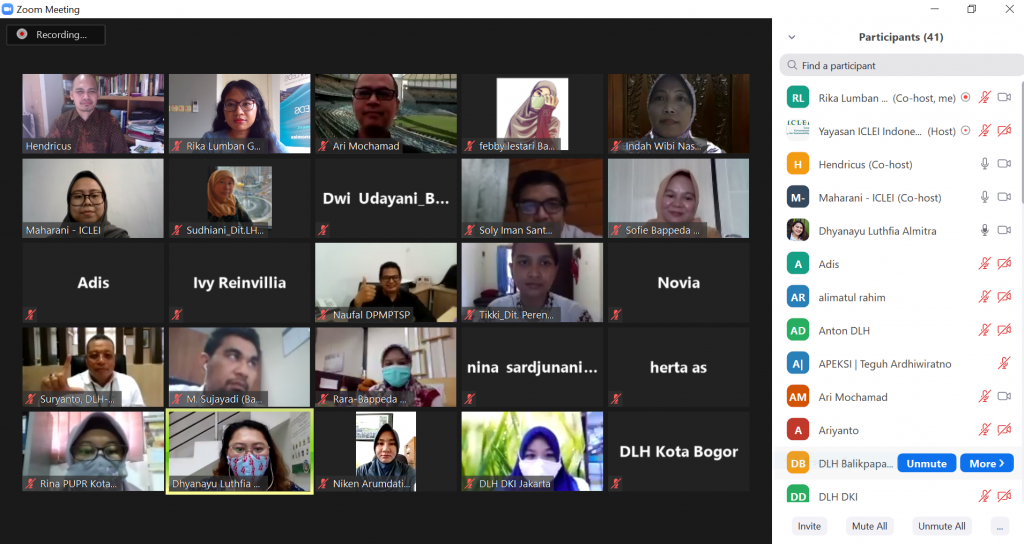This story originally appeared in Urban LEDS on September 14, 2020.
14 September 2020 - ICLEI SEAS in partnership with the city governments of Balikpapan and Bogor, held a virtual kick-off meeting entitled Integrated Urban Low Emission and Climate Resilient Urban Development Planning on 9 September, 2020. The meeting explored the latest strategies in planning, implementation, and monitoring for urban development and climate change.
Lessons from Urban-LEDS Phase I
Under Urban-LEDS Project I, the two model cities, Bogor and Balikpapan, each developed its urban low-emission development strategies (urban-LEDS), which were incorporated into their respective five-year development plans. These action plans identify their priority sectors to achieve their greenhouse gas (GHG) emission reduction targets.
Balikpapan City has set a GHG emission reduction target of 1.1 million tCO2e, which is a 19.39% reduction from its 2010 business-as-usual (BAU) emission trajectory in 2020. Meanwhile, Bogor City has prioritized several sectors, i.e., spatial planning, air pollution control, public transportation, pedestrianization, green building standardization, integrated waste management, and energy efficient street lights retrofits.
Balikpapan City Head of Environment Agency, Mr. Suryanto shared the activity’s timelines as the city’s current five-year development plan is bound to end in 2021. “This is good momentum to review the developed urban LEDS action plan from phase I. Integrating the adaptation co-benefits would be great toward a resilient city,” said Mr. Suryanto.
He highlighted that the activities not achieved in the 2016-2021 time frame shall spill over into the succeeding five-year development plan. These activities include scaling the replacement of lamps to efficient lighting, methane capture utilization, and the development of mass public transportation facilities, among others.
Bogor City recognizes that its limited local budget has been insufficient to deliver the identified climate actions in its urban-LEDS plan. MRV tools are also needed to assess the climate actions’ effectiveness.
Urban-LEDS and National Urban Policy
The Urban-LEDS Project aligns with the Government of Indonesia’s agenda to promote low-carbon development. The Ministry of National Development Planning/BAPPENAS has established the Secretariat of Low Carbon Development Indonesia (LCDI). LCDI is a new development platform that aims to maintain economic and social growth through low-emission development activities and the sustainable use of natural resources.
The platform also lobbies for the transformation of National and Local Action Plans for GHG Emission Reduction to Low-Carbon Development Plans, requiring a paradigm shift from emissions reduction efforts to holistic socio-economic development.
“Low Carbon Development Plan is also taking part in achieving the Sustainable Development Goals, particularly Goal No. 7, 11, 12, 13, 14 and 15”, explained Mrs. Sudhiani Pratiwi, Head of the Subdivision of the Directorate for Environmental Quality and Climate Change, BAPPENAS. She added that the national government urges local governments to support the realization of a green and resilient city by 2045 as required by the National Urban Policy.
To support the basis for the project’s second phase, participants have identified measurable outcomes from the first phase namely (1) more efficient urban finance, (2) better environmental quality, and (3) increased investment. Phase II shall also promote economic prosperity, explore spatial planning to attract private sectors participation, such as through the application of low emission zones in central business districts; and influence local planning and policy formulation.
The workshop concluded on the challenges and opportunities around the 2021 annual budget as it should address the immediate recovery from the COVID-19 pandemic while promoting long-term economic growth
